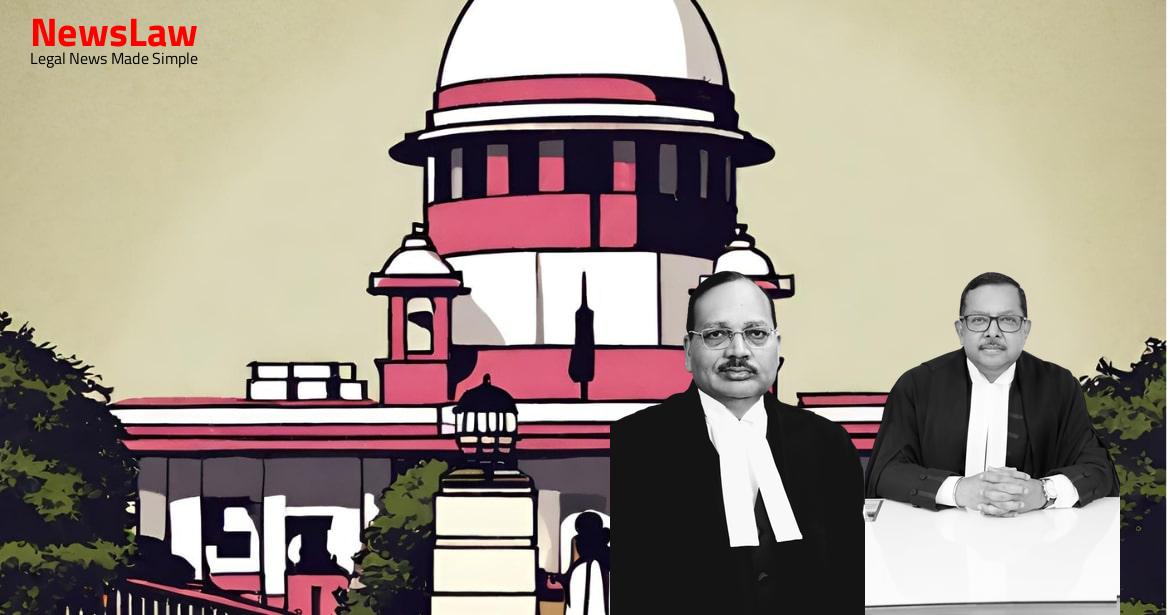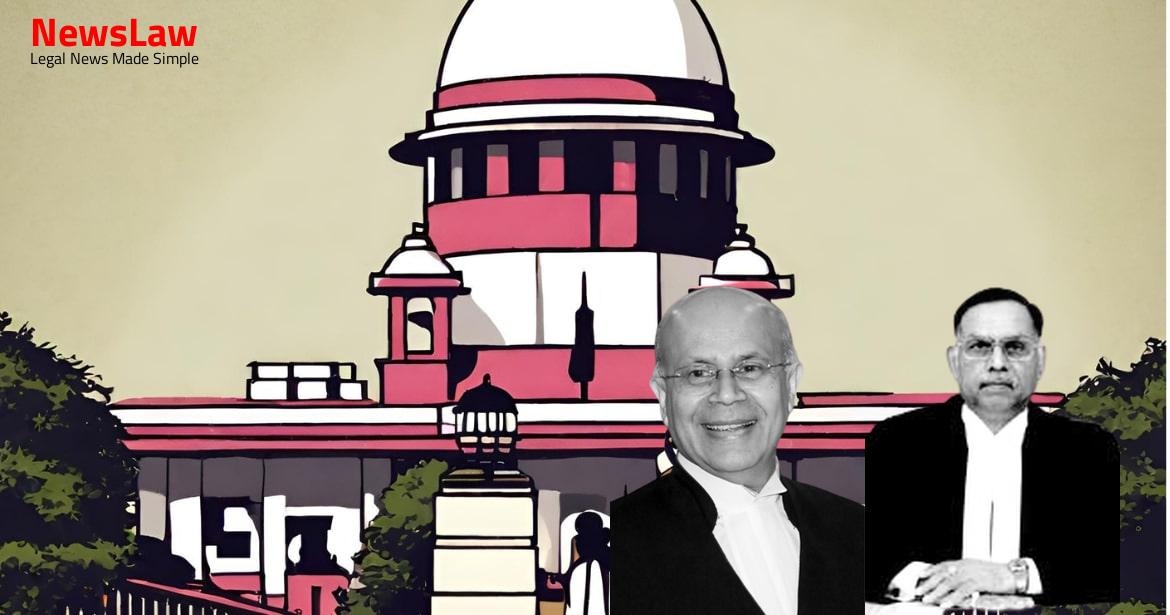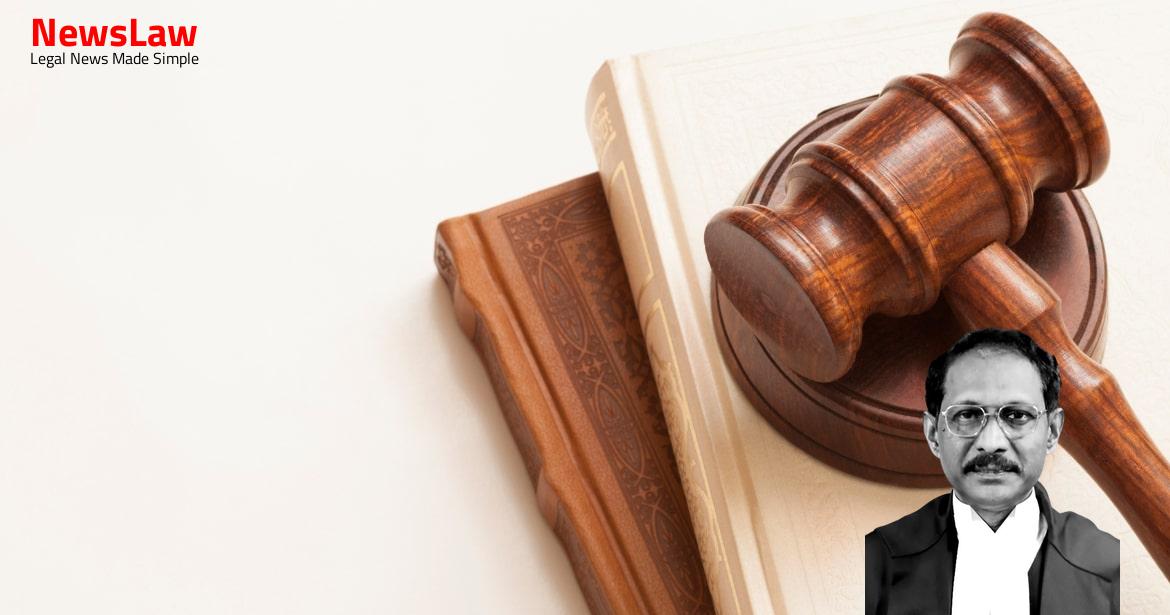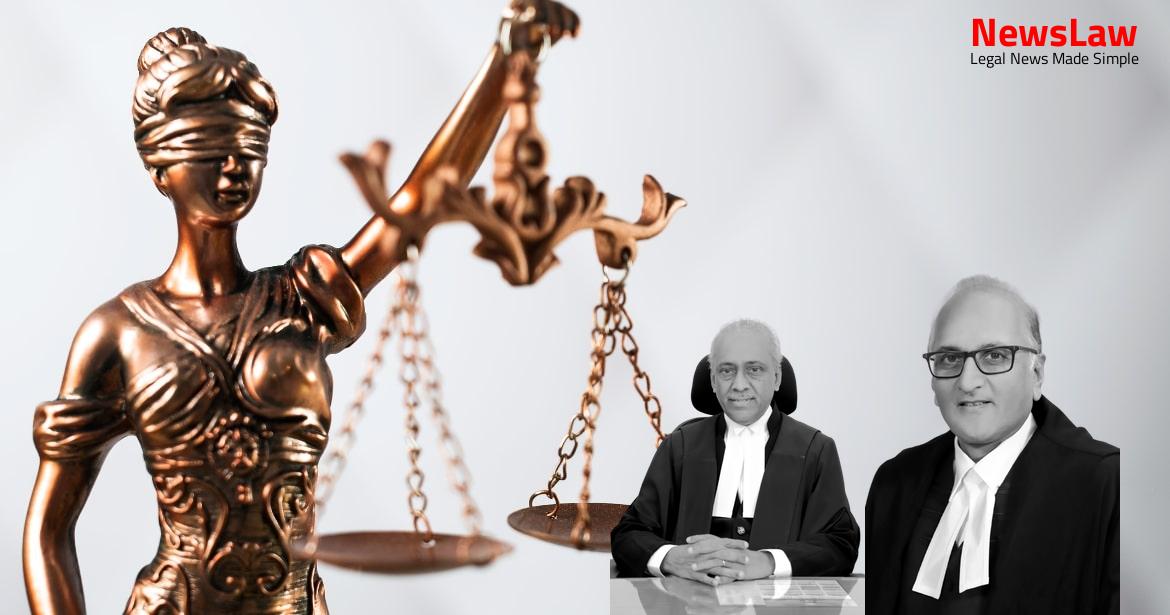In a significant legal battle, the Supreme Court of India recently delivered a verdict on a tax collection dispute involving Mysore Sales and Excise Contractors. The case delved into the applicability of Section 206C of the Income Tax Act and the definition of ‘buyer’ under Explanation(a). Stay tuned to explore the details of this case and the consequential judgment by the Supreme Court.
Facts
- The appeal is against the judgment and order of the High Court dated 13.03.2006.
- The Division Bench of the High Court dismissed the writ appeal filed by the appellant and others, challenging the orders passed under Section 206C(6) of the Income Tax Act.
- The assessing officer held the appellant as a ‘seller’ and liquor vendors as ‘buyers’, directing the appellant to collect income tax at source from the vendors.
- The appellant was directed to deposit the specified sums as income tax deductible at source, along with levied interest.
- The challenge to the assessing officer’s orders was first rejected by the Single Judge and then by the Division Bench of the High Court.
- The core issue in this appeal is the applicability of Section 206C of the Income Tax Act to the appellant and determining whether liquor vendors qualify as ‘buyers’ under the Act.
- The question of whether the High Court was justified in upholding the assessing officer’s orders is also under consideration.
- The relevant facts of the case were briefly narrated, and the judgments of the Single Judge and the Division Bench were discussed.
- Mysore Sales, a Karnataka Government undertaking, is engaged in manufacturing arrack.
- Mysore Sales entered the arrack trade in July 1993 as per the excise laws of Karnataka.
- The state government discontinued private bottling units in 1993 and limited operations to state government companies like Mysore Sales.
- Mysore Sales was entrusted with bottling arrack and marketing it on behalf of the state government.
- The retail sale price of arrack is fixed by the state government as per the 1967 Rules.
Also Read: M/s Bhanu Iron and Steel Company Ltd. vs. Commissioner of Customs
Arguments
- Learned counsel for the appellant argues that orders passed by the assessing officer under Section 206C(6) for the assessment years in question should be set aside.
- The appellant’s counsel relies on various cases to support their arguments.
- The revenue’s senior counsel contends that the High Court’s order is error-free and should not be interfered with.
- The assessing officer determined that the sale price of liquor was not fixed, only the range of minimum and maximum selling prices.
- The auction was for the retail or vending right of arrack, not for the arrack itself.
- The appellant’s jurisdiction argument was rejected by the Single Judge as technical.
- The revenue wrongly believes that auction and purchase of arrack are interconnected actions.
- Mysore Sales, being a public sector undertaking, is argued to be exempt from Section 206C of the Income Tax Act.
- There was no sale of arrack to license holders by Mysore Sales, a point overlooked by the courts.
- The auction transfers the right to conduct retail business, not the arrack itself.
- The Section 206C orders were considered to violate natural justice principles.
- The appellant argues there is no sale between Mysore Sales and the excise contractors.
- Arrack is bottled under the supervision of the Excise Commissioner.
- The appellant seeks the set aside of both the Single Judge and Division Bench orders.
- Liquor contractors fell under the definition of ‘buyer’ under Explanation(a) to Section 206C of the Income Tax Act.
- Contractors had the flexibility to sell liquor within a set price range.
- Assessing officer’s orders under Section 206C(6) were justified due to non-compliance.
- Mysore Sales was obligated to deduct TDS from liquor contractors.
- Sale price of liquor was considered unfixed due to the broad range of pricing.
- Assessing officer’s view on excise vendors obtaining goods through auctions was supported by the requirement of permits via successful bidding.
Also Read: Analysis of Abetment to Suicide Conviction
Analysis
- Explanation(a)(iii) of the Income Tax Act defines the exclusion criteria for the term ‘buyer’.
- The excise contractors in Karnataka do not fall under the definition of ‘buyer’ as per Explanation(a)(iii).
- The sale price of arrack sold by the excise contractors is fixed statutorily under Rule 4 of the 1967 Rules.
- The excise contractors do not obtain arrack through auctions, satisfying the first criteria in Explanation(a)(iii).
- Analysis includes the process of shortlisting excise contractors via auction or tender for the retail vend of arrack.
- The arrack is procured in sealed bottles or polythene sachets from authorized warehouses or depots.
- A detailed examination of Section 206C of the Income Tax Act is carried out in relation to the excise law framework in Karnataka.
- The Karnataka Excise Act and specific rules dictate the liquor trade operations and pricing structures.
- Section 206C of the Income Tax Act mandates sellers of specified goods to collect a percentage of the amount payable by the buyer as income tax.
- The collected amount is deemed as tax payment on behalf of the buyer and should be credited to the buyer during assessment proceedings.
- A certificate specifying the tax collection details must be issued to the buyer within 10 days of the transaction.
- Half-yearly returns must be prepared and submitted to the prescribed income-tax authority for the relevant periods.
- Returns filed on specified computer media are considered valid without the need for the original document.
- Failure by the person responsible for tax collection to collect the tax results in liability to pay the tax to the Central Government.
- Interest is levied on the unpaid tax amount if the seller fails to collect or pay the tax as required.
- Unpaid tax along with accrued interest becomes a charge on the seller’s assets.
- Assessing Officer may grant a lower tax rate certificate based on buyer’s total income.
- If a lower tax rate certificate is granted, the tax must be collected at the specified rate until the certificate is cancelled.
- Rules for application and conditions for lower tax rate certificate issuance are specified by the Board.
- Definitions and powers related to alcohol licensing, bottling, and manufacturing are outlined in the Excise Act.
- State government has the authority to grant exclusive rights for manufacturing and sale of alcoholic beverages.
- Provisions for registration of excise contractors are defined in the rules.
- This Court considered the issue of tax collection at source in respect of the liquor trade under Section 206C of the Income Tax Act.
- The question was whether a licensee in the liquor trade would qualify as a ‘buyer’ under Explanation 40(a) to Section 206C(1).
- The Court emphasized that a buyer must be a purchaser of goods, not solely someone holding a license for the trade.
- It was clarified that a ‘buyer’ is someone who, through payment, obtains the right to receive specific goods, not just permission to conduct business in that trade.
- Any person collecting TDS under sub-section (1) must pay it to the central government within seven days.
- The High Court was not justified in dismissing the writ petitions and the writ appeal challenging the orders dated 17.01.2001.
- Every person collecting TDS in terms of Section 206C(1) must prepare half-yearly returns for specific periods and submit them to the assessing officer.
- If a person responsible for collecting TDS fails to do so, they must deposit the amount to the central government.
- Orders passed under Section 206C(6) have adverse civil consequences, hence principles of natural justice must be followed.
- Notice and hearing must be provided before passing an order under Section 206C of the Income Tax Act.
- The assessing officer must notify the person concerned and provide them with an opportunity for a reasonable hearing before passing an order under Section 206C.
- The judgment concludes that Section 206C of the Income Tax Act is not applicable to Mysore Sales and the liquor vendors who bought vending rights from the appellant on auction are not considered as ‘buyers’ under Explanation (a) to Section 206C.
Also Read: Challenges in Proof of Firearm Offence: Legal Analysis
Decision
- Judgment and order dated 13.03.2006 by Division Bench of High Court of Karnataka at Bengaluru in Writ Appeal No. 7926/2003 and connected writ appeals set aside
- Judgment and order dated 27.10.2003 by learned Single Judge of High Court of Karnataka at Bengaluru in Writ Petition Nos. 6869-6874 of 2001 and other connected writ petitions set aside
- Orders dated 17.01.2001 by Deputy Commissioner of Income Tax (TDS)–1, Bengaluru under Section 206C(6) of Income Tax Act for assessment years 2000-2001, 1999-2000, 1998-1999, 1997-1998, 1996-1997, and 1995-1996 as well as consequential demand notices under Section 156 of Income Tax Act set aside and quashed
- Civil Appeal allowed with no order as to cost
Case Title: THE EXCISE COMMISSIONER, KARNATAKA Vs. MYSORE SALES INTERNATIONAL LTD AND ORS. ETC. (2024 INSC 484)
Case Number: C.A. No.-002168-002168 – 2007



